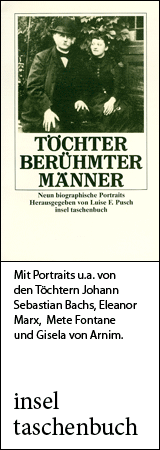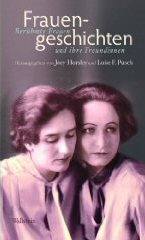Lesbian potpourri: Law and Order SVU’s latest caper
I have to confess: I’m a “Law and Order” junkie. Despite the ever more contrived and sensationalizing plots, I find myself watching again and again. I especially liked the recently ended original version, with Epatha Merkerson as the drily understated Lieutenant Anita Van Buren. But I’ve even become a follower of the “Special Victims Unit” series that deals with sex offenders, in which “an elite squad,” the dazzling Detectives Olivia Benson (Mariska Hargitay) and Elliot Stabler (Christopher Meloni) – aided by their more rumpled colleagues Fin (Ice-T) and Munch (Richard Belzer) – unravel one improbable, grisly crime after another without losing their own glamour or crisp sex appeal.
Luise and I have often had occasion to grumble about the relative invisibility of lesbians in media and culture, these days, even when compared to gays. (For example, when a popular German talk show featured recent gains by “gays and lesbians,” the panel consisted of seven men and one lesbian; predictably, she barely got a word in edgewise. – “Menschen bei Maischberger,” November 3, 2009). In last Wednesday’s episode of Law and Order SVU, however, entitled “Shocking Discovery,” the gay girls were front and center. I am still puzzling out my mixed reactions to the show. (The comments at an online lesbian chat were similarly divided between those who “liked it” and those who didn’t. Although few reasons were given for either position, there was a consensus view that Mariska Hargitay was “sooo hot.” )
On reflection, it seems to me that the episode, which was first aired last March under the title “P.C.”, was attempting to pack as many popular and sensationalizing images of contemporary lesbian life into the hour as the somewhat thin and contrived plot could sustain. There was something for everybody; whatever your attitude about lesbians, you could come away from the show with your biases confirmed. A real fence-sitter, the show sought to appeal to the broadest possible audience with a comforting mix of “positive” social messages, negative stereotypes and a dash of titillation.
On the plus side, the episode incorporated a respectful treatment of loving relationships and a fleeting mention of real issues such as coming out, gay marriage, and lesbian battering; the crime plot acknowledged the reality of hate crimes against lesbians.
But the group of lesbian activists around which the show centers was presented as so stereotypical (at once angry and naïve) as to give the whole case more than a whiff of the ridiculous. When militant feminist Babs Duffy (played by Kathy Griffin) charges into the squad room with her band of followers and loudly accuses the NYPD of doing nothing against the killing of lesbians, her rhetoric is so over-the-top, her man-hating attack against the captain and Detective Stabler so unpleasant that we immediately resent her – and doubt her cause. Stabler is especially irritated by all the “P.C.” talk that she emits; the only P.C. he adheres to is “probable cause.” Babs’s supporters, the members of her organization “LesBStrong,” are pictured as sheeplike followers, totally dependent on their publicity-seeking leader for emotional and political guidance. Duffy and her organization are further belittled when fliers they have ordered for a demonstration are falsely printed as featuring “Babs Daffy” as speaker. And after making a pass at Det. Olivia Benson, the babbling Babs is finally forced to confess a secret of her own that even more devastatingly undermines her credibility as a leader of lesbians.
Other clichés and stereotypes abound. The lesbian bar “Kitty Cat” (or was it "Kitty Corner"? – shades of my last blog!) is guarded by an aggressive butch lesbian with anger management issues. When she takes a swing at Det. Stabler she is brought in to the precinct to cries of “police brutality!” from Duffy’s outraged troops. Poor Elliot! The earnest, well-meaning police can't seem to please these hysterical feminists. We later learn that one suspect in the underlying crimes could have been motivated by his anger at “dykes for taking over the neighborhood.” Given the many negative images of the women and their group, some in the audience will doubtless share his feelings.
So while I'm glad that the sisters got some air time of their own, I'm wishing that SVU could have taken a clearer position on crimes against them. When the Special Victims are children, the noble detectives never hold back their disgust at the perpetrators. When the victims are lesbians, it almost seems as if they deserve to suffer.
Kommentieren für diesen Channel-Eintrag nicht möglich
Keine Kommentare
Nächster Eintrag: Angela Steidele, Geschichte einer Liebe: Adele Schopenhauer und Sibylle Mertens
Vorheriger Eintrag: Of Words and Women: Dictionaries and Their Discontents


